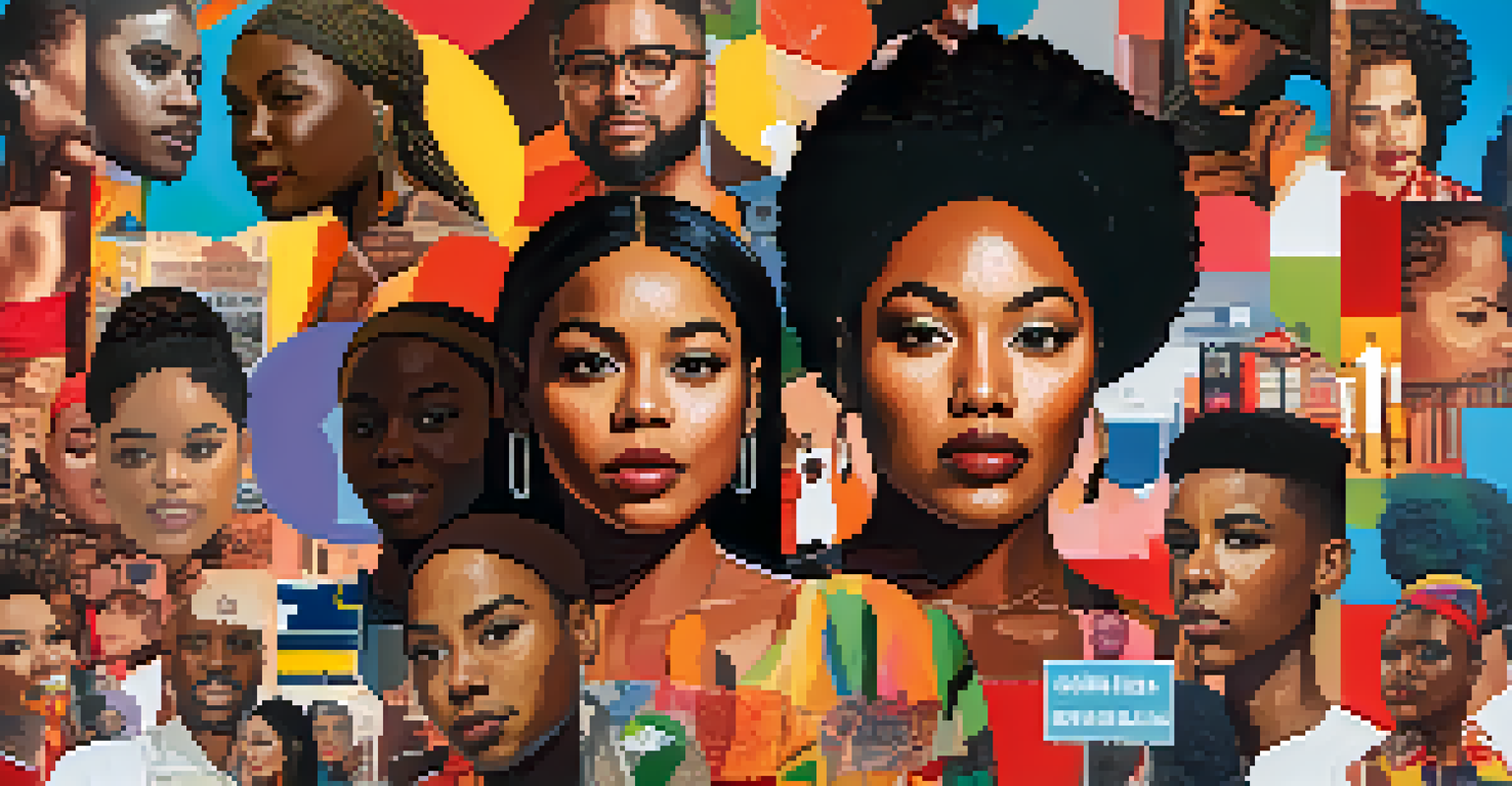The Role of Social Media in Atlanta's Activism Scene

Understanding the Activism Landscape in Atlanta
Atlanta has long been a hub for activism, rooted in its rich history of civil rights movements. From the civil rights era to contemporary social justice initiatives, the city has fostered a vibrant community of advocates. This culture of activism is now being transformed by the advent of social media, which provides new platforms for voices to be heard and amplified.
In the face of injustice, silence is complicity.
Activists in Atlanta leverage various social media platforms to mobilize supporters and spread awareness about critical issues. Whether it's Twitter, Instagram, or Facebook, these channels allow for real-time communication and engagement. This immediacy helps to create a sense of urgency and fosters a community of like-minded individuals committed to change.
Moreover, social media allows for a broader reach, connecting local issues to national conversations. For instance, hashtags like #ATLBlackLivesMatter have not only sparked local protests but have also attracted national attention, showcasing Atlanta's activism on a larger stage.
The Rise of Digital Organizing in Atlanta
Digital organizing has become a game-changer for activists in Atlanta, allowing them to coordinate events and actions with ease. Platforms like Facebook Events and WhatsApp groups enable quick organization of rallies, meetings, and discussions. This shift means that getting involved in activism is more accessible than ever, breaking down barriers for participation.

Additionally, digital tools help activists gather and share resources effectively. For example, Google Docs can be used to create shared resource lists, while online petitions can quickly garner support. This collaboration not only strengthens community bonds but also enhances the overall impact of their efforts.
Social Media Transforms Activism
Activists in Atlanta are leveraging social media to mobilize support and amplify voices for social justice.
Furthermore, the ability to share information rapidly means that activists can respond to unfolding events almost instantaneously. This agility was notably seen during the protests following the death of George Floyd, where social media played a crucial role in organizing and mobilizing thousands in Atlanta.
Social Media as a Platform for Diverse Voices
One of the most significant advantages of social media in Atlanta's activism scene is its power to amplify diverse voices. Historically marginalized communities can share their stories and experiences, creating a richer narrative around social justice issues. This diversity is essential for fostering understanding and solidarity among different groups.
Social media is a powerful tool for change, but it requires active engagement to be effective.
For instance, platforms like Instagram have become a canvas for artists and activists to share their perspectives through visual storytelling. This form of expression not only engages viewers but also educates them about various struggles faced by different communities in Atlanta. By sharing these narratives, social media helps to humanize issues that might otherwise go unnoticed.
Moreover, the inclusive nature of social media allows for intersectionality to be highlighted in activism. Activists can link various causes—such as racial justice, LGBTQ+ rights, and environmental issues—demonstrating how they intersect and impact individuals differently. This interconnectedness strengthens the movement as a whole.
Challenges of Misinformation and Online Activism
While social media serves as a powerful tool for activism, it also presents challenges, particularly regarding misinformation. In the fast-paced digital landscape, false information can spread rapidly, undermining the credibility of movements. Activists in Atlanta must navigate this terrain carefully to ensure their messages are based on facts.
To combat misinformation, many activists are prioritizing education and awareness campaigns. By providing accurate information and resources, they aim to arm their followers with the knowledge necessary to discern fact from fiction. This proactive approach helps to foster a more informed activist community.
Digital Organizing Enhances Participation
Digital tools facilitate event coordination and resource sharing, making activism more accessible to a wider audience.
Additionally, the phenomenon of 'slacktivism'—where individuals show support through social media likes and shares without taking real-world action—poses another challenge. Activists in Atlanta encourage their followers to translate online engagement into tangible actions, such as attending rallies or volunteering, to ensure that their support has a meaningful impact.
Building Community Through Online Engagement
Social media has become a vital space for building community among activists in Atlanta. Through online platforms, individuals can connect, share experiences, and support one another in their activism journeys. These connections often translate into real-world relationships, creating a strong support network.
Online engagement also allows for the exchange of ideas and strategies among activists. Discussion forums and group chats provide a space to brainstorm solutions and share successes. This collaborative spirit fosters innovation, enabling activists to tackle challenges in creative ways.
Moreover, social media can be a source of inspiration and motivation. Activists often share stories of triumph, resilience, and solidarity, reminding others of the power of collective action. This sense of community not only encourages participation but also nurtures a culture of support and empowerment.
The Role of Influencers in Atlanta's Activism
Influencers play a significant role in Atlanta's activism landscape, using their platforms to raise awareness and advocate for change. Many local influencers have aligned themselves with social justice causes, leveraging their reach to mobilize their followers and drive action. This collaboration can amplify messages far beyond traditional media channels.
However, the involvement of influencers also raises questions about authenticity and accountability. Activists in Atlanta emphasize the importance of genuine support over performative allyship. They encourage influencers to engage deeply with the causes they promote, ensuring that their actions align with their messages.
Influencers Impact Activism Dynamics
Local influencers are raising awareness for social justice causes while emphasizing the importance of genuine engagement over performative actions.
Ultimately, when done right, influencer involvement can bring much-needed attention and resources to grassroots movements. By partnering with established activists and organizations, influencers can help elevate local issues to a wider audience, creating opportunities for impactful change.
Future Trends: Social Media and Activism in Atlanta
Looking ahead, the relationship between social media and activism in Atlanta will likely continue to evolve. As technology advances, new platforms and tools will emerge, offering fresh opportunities for engagement and organizing. Activists will need to stay adaptable and open to incorporating innovative strategies into their work.
Additionally, the importance of digital literacy will become increasingly apparent. As misinformation remains a challenge, equipping activists with the skills to navigate the digital landscape will be crucial. Training sessions and workshops focused on media literacy can empower individuals to become more effective advocates.

Finally, as the landscape of activism shifts, the focus on intersectionality and inclusivity will remain paramount. Atlanta's activists will continue to leverage social media to create spaces where all voices are heard and valued, ensuring that the movement for social justice is as diverse as the city itself.